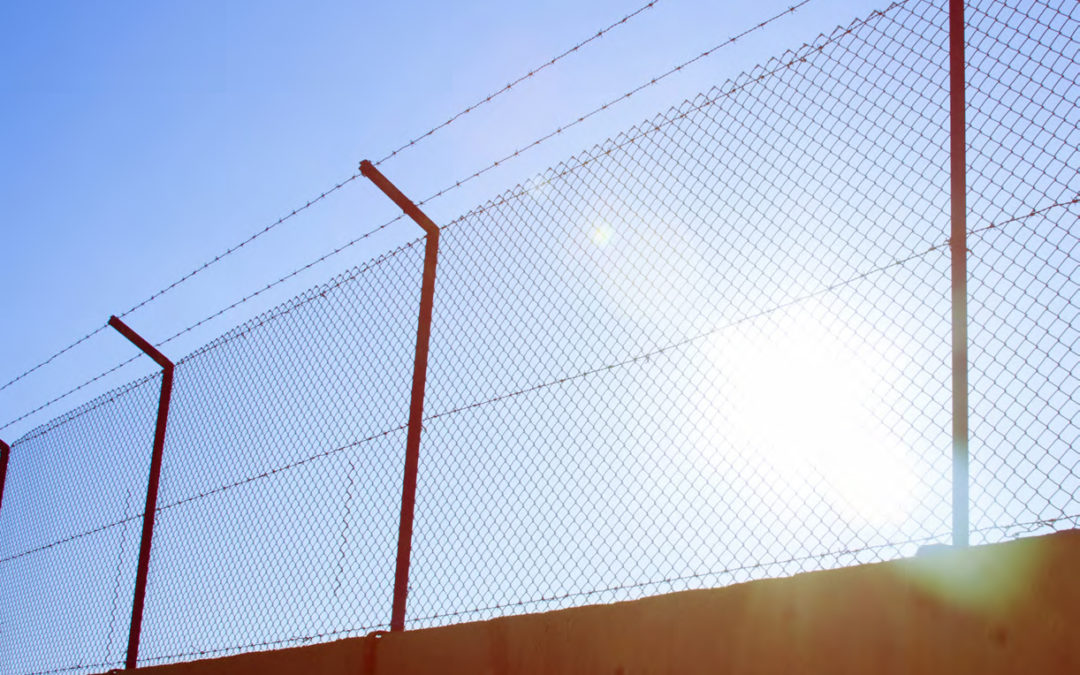—Adrainne Gray
I don’t like gates, enclosures, pens, fences, walls.
I never have. It’s part of the reason I felt more suited to the call of deacon or the office of Word and Service, positions that call one to go outside the walls of the church, mostly.
The feeling of being restricted bothers me. It bothers me even more when others appear to be stuck, confined or fenced in. I want to be free to live the life God intended, and I encourage others to find that freedom as well.
For many of us here today in the Holy Land, restrictions and confinement bother us, and that’s why we’ve come to walk with others toward freedom.
If we play the who-are-we-in-this-Scripture game, and we are the sheep, what emerges for me is that if we, the sheep, weren’t penned in, there would be no need for a gate.
You may be thinking: But the sheep need to be penned in because sheep are dumb and wander off, and like dumb sheep, we need to be kept safe.
My experience makes me challenge that.
THE DANGER IN ENCLOSURES
I do not need to be kept in bondage for my own safety because I lack intelligence. We, who are made in the image of God, do not need to be herded up and penned in for our own safety.
I am a black American, and for this reason, I’m not a fan of enclosures. Enclosures or prisons are used to disproportionately incarcerate black American men in the United States at six times the rate of whites. Of my male relatives, three are currently serving time in state correction facilities, and a few others have also spent some time in jail.
In the Holy Land, Palestinians are often jailed for longer sentences for lesser crimes than Israelis, or jailed without trials, especially if they are political prisoners. Palestinian prisoners have protested this with hunger strikes.
There are other enclosures too. Of the 65 million refugees and displaced persons in our world, several million are housed in refugee camps throughout Europe, Africa and Palestine.
Dear Jesus, if we had no enclosures, we would have no need for gates.
THE GATEKEEPERS
Gatekeepers are being used to restrict some and admit others. Gatekeepers get to say who is in and who is out, oftentimes based on prejudices and fear. For example, in the United States, before the civil rights movement led to great change and progress, whites were allowed to use the front door of establishments, but blacks had to enter through the back.
Oddly, being in the Holy Land as a black American can bring its own set of challenges when I pass a gatekeeper or encounter guards at checkpoints.
Here it is not my complexion that denies me entry, but my passport that allows me in. I don’t walk through the checkpoints often, but even as glimpsed from a car, the disparities in who is allowed in and who is kept out are glaring.
I’ve watched as Palestinian drivers are made to get out of vehicles, searched, car trunks opened and delayed, because a gatekeeper is suspicious.
Then I roll up, and the gatekeeper takes one look at me and my American way of holding myself. It is as if my American privilege wafts through the window, and I am flagged through without a care. Even if she is an African immigrant, it’s safer than a Palestinian, determine the gatekeepers.
I’ve never been a fan of gates, always refusing to live behind one. When my husband and I interviewed for positions as ELCA missionaries, we were asked what would be the one thing that would keep us from accepting a call. We said that we refused to live in a gated compound, behind a guarded gate, away from our neighbors. For us, walled communities signify division—them and us.
Adrainne Gray is an ELCA missionary with the Evangelical Lutheran Church in Jordan and the Holy Land.
This article is excerpted from the May 2018 issue of Gather magazine. To read the full story or more like it, subscribe to Gather.


